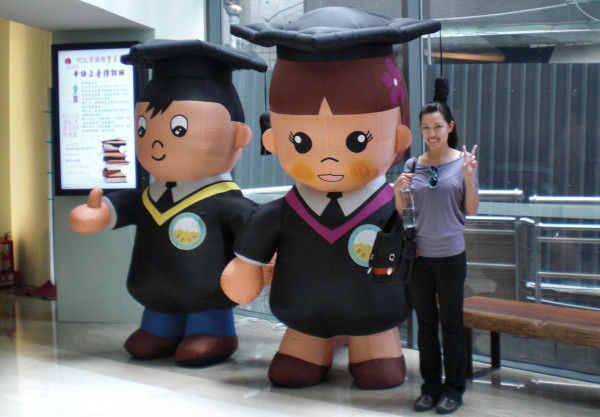
By Lianne Lin
I’m a second generation ABC (American Born Chinese) who grew up knowing little to no Chinese. My father is ABC as well, born in San Francisco to immigrant parents from Guangdong, China, and my mom was born in Taiwan to parents who emigrated from Shandong, China. She came to America at age 14 and by the time she married my dad at age 22, she was fluent in English.
I think my mom tried to teach me some Chinese when I was little, but gave up after I showed no interest in learning, which is pretty common for children of immigrants. However, most ABCs know more Chinese than I do, because their parents speak it at home, and/or they are forced to attend Chinese school, which I wish had been the case with me. But back then, my parents had no idea that I would want to learn it later on.
My mother taught my brother and me a few phrases in Mandarin, bare basics like “hello (你好),” “thank you (謝謝),” “young lady (小姐),” “let’s go (走吧),” and “let’s eat (吃飯啦).” But the phrases we knew best were what she yelled at us when she was mad, when her English would suddenly switch to Mandarin. It was stuff like, “spank your butt (打你屁股),” “annoying kid (討厭鬼),” “you make me mad (氣死我啦),” etc.
I gained an interest in learning Mandarin when I moved to Los Angeles in 2005. I bought some language CDs (including Rosetta Stone) and even tried copying characters over and over in a book. But of course nothing compares to taking a class, where you have pressure to answer questions and study for tests. I finally started taking Mandarin classes at Santa Monica College, then took two more semesters at Pasadena City College. I found the grammar to be extremely hard to catch onto, especially since I was not used to the way Mandarin sounded. Most of the kids in the class already knew Mandarin and were there for an easy A. I nearly failed my third semester because I just couldn’t keep up.
I started hanging out in San Gabriel Valley a lot, where the population is 60% Asian. I would do my homework in tea shops like Lollicup and Tea Station, drink a lot of boba and take photos in the Japanese photo booths with my friends all the time. I realized I wanted to take this thing to the next level. I wanted to live in Asia.
In 2010 I moved to Taiwan, where I had been to only twice before. To qualify for a student visa, you need to be studying 15 hours a week, so I enrolled in the intensive Mandarin class at Wenhua University in Taipei. The students in my class were from all over the world, mostly France, England, Korea, Vietnam, or Japan. I also met students from Australia, Canada, Germany, and Mexico. There was a really good mix.
I of course first made friends with the other English speakers (French, British, Australian). We all spoke Mandarin in our own distinct terrible accents that mimicked our native accents. But after a while I tried to hang out more with the students from other Asian countries who couldn’t speak English. Thus I could more practice my Mandarin without reverting back to English when I got “stuck.” We were all learning the same vocabulary so we could understand each other pretty well.
But with locals, I felt extremely awkward with my Mandarin speaking and would often get flustered and stop talking. For people who are not easily embarrassed, have a good memory and have a good ear for tones, they can pick up Mandarin intonations rather quickly. It is also, of course, much easier for younger people. But for me, the 30-something year old, it took two years of intensive study in Taiwan and a trip to Vietnam with one of my Vietnamese friends to finally be able to speak more fluently. He didn’t speak English at all, so we communicated entirely in Mandarin for an entire week as we traveled around Northern Vietnam. After that, I talked to my mom over Skype and she was pleasantly surprised at my sudden fluency. I had known the words all along but had lacked the confidence and the experience of putting the sentences together to convey my thoughts.
So now that I am back in the US after three great years in Taiwan, I can proudly say that I can speak conversational Mandarin and am not shy about it anymore. If I don’t know quite how to say something, I will just launch into the sentence and keep rambling and use sign language until the other person understands what I’m getting at. Learning Mandarin has been a long and difficult journey (that truthfully, has no end in sight), but it’s one of the most rewarding things I have ever done.
===
ABOUT THE AUTHOR. Lianne Lin is an international media personality, beauty stylist, model, and writer.








